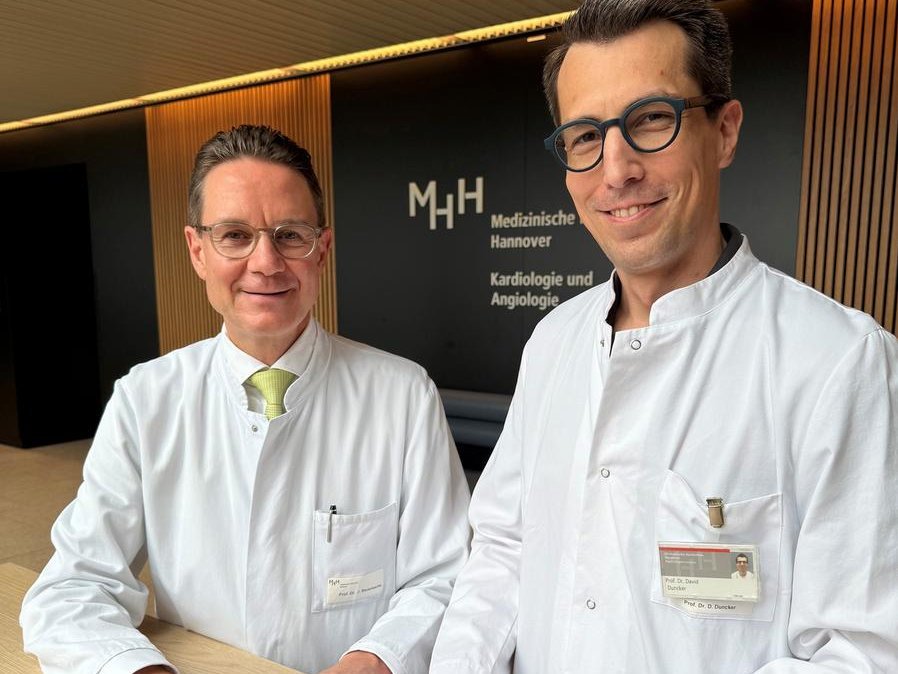Innovation in cardiology: cardiac data is transferred to the electronic patient file in real time. The MHH implemented the technology for the first time worldwide.

Clinic Director Professor Dr. Johann Bauersachs (left) and Professor Dr. David Duncker demonstrate how simple it is: place your finger on the device and the ECG data is recorded. Copyright: Cardiology/MHH
A patient suddenly has atrial fibrillation at home and the physician at the specialist clinic providing care can evaluate the recorded electrocardiogram (ECG) data almost simultaneously - this is possible at the Hannover Heart Rhythm Center (HHC) of the Clinical Department of Cardiology and Angiology at MHH. The HHC is the first in the world to implement this technical innovation. It is a major step towards improving the treatment of people with cardiac arrhythmia.
Atrial fibrillation is widespread
Statistically, one in three people develop atrial fibrillation, usually at an advanced age. The heart then beats too quickly and irregularly. Atrial fibrillation is the most common cardiac arrhythmia and can increase the risk of heart failure and strokes. However, it is not always easy to diagnose. "The new technical solution makes it much easier to detect atrial fibrillation and other cardiac arrhythmias," explains Prof. Dr. David Duncker. It works like this: The patient's ECG device is linked to their cell phone, on which the ECG data is recorded. Using a code, this data is then transferred from the cell phone to the HHC's ECG software and automatically entered into the electronic patient file. There is no need for manual data entry or faxing.
Faster diagnoses
The attending physicians can access the ECGs almost in real time, compare them with previous ones and evaluate them. "Direct transmission allows us to make diagnoses more quickly and initiate the necessary treatment. It also makes follow-up care easier," explains Professor Duncker. "With the new technology, we are bringing cardiac rhythm care closer to the patient." For patients, in turn, it is reassuring to know that their ECGs can be checked immediately by a physician and not just when they come to the Clinical Department for their next check-up.
Fewer hospital stays
The innovation is based on a cooperation with the medical technology companies GE HealthCare and AliveCor. Overall, it helps to improve the care of cardiac patients and reduce the number of repeat hospital stays. After every four weeks, other suitable patients will be fitted with them.
Text: Tina Götting